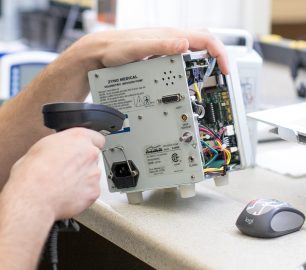The rise of the millennial generation is changing the American workplace, and the healthcare industry is no exception. Employers should take note of how this generation is impacting healthcare, and understand how to retain and keep millennial workers.
Why do millennials in the workforce matter?
According to the Pew Research Center, which examined data from the U.S. Census Bureau, 35 percent of the U.S. labor force belongs to the millennial generation. Workers aged 21-36 in 2017 make up the largest portion of that labor force, giving millennials increasing influence in the workplace.
Also important to note is that many millennials have an interest in health-based careers. In a 2015 survey of 18,000 students aged 15-29, 40 percent of respondents wanted to work in healthcare.
Millennial workers often seek meaningful work at purpose-driven organizations, which makes healthcare an attractive industry for younger job seekers.
How are millennials changing the healthcare workplace?
The health sector is already seeing the results of millennials’ influence. Here are a few changes that the millennial is bringing to the workplace.
- Healthy workplace culture: Work-life balance is a common concern among millennials, which creates challenges in a demanding industry like healthcare. AMN Healthcare’s 2017 Survey of Registered Nurses found that, more than their older counterparts, millennial nurses worry about how their job and overall work environment affect their health, and how this may impact patient care.
- Job turnover: In the pursuit of work-life balance and career fulfillment, millennials have contributed to higher turnover rates in many companies. Combined with the looming worker shortage, this has left many health organizations scrambling to find ways to keep good employees.
- Emphasis on technology: As the first generation to grow up with the Internet, millennials have long supported the increased use of technology at work. This includes working off-site, or communicating with supervisors via texting.
- Embracing overall change: In general, millennials don’t fear change. After all, they grew up with major shifts that include rapid technological advancements, the events of 9/11, and the 2008 economic downturn. Millennial workers in leadership positions could lead to significant workplace shake-ups.
Creating a Millennial-Friendly Workplace in Healthcare
Many organizations face a shortage of qualified workers. As millennials seek meaningful jobs in the health sector, organizations should take deliberate steps to draw and keep workers in that generation.
- Use frequent, varied communication. Millennials crave feedback in their jobs, but this doesn’t mean they need constant praise and affirmation. Many younger professionals have a genuine desire to grow and develop in their careers. This means that managers should frequently communicate their expectations and advice to millennial workers. A wide variety of communication options, including texting and teleconferences, also caters to the generation’s use of technology.
- Offer career development options. Health organizations should provide the growth opportunities their millennial workers seek. Some examples include the chance to advance to a leadership position, tuition reimbursement for advanced degrees, or mentorship programs. Work with new hires to help them understand the organization’s mission.
- Create a flexible workplace. The desire for a healthy work-life balance among millennial employees has prompted more organizations to embrace alternative work methods. Depending on the workers involved, this may mean remote work (including telemedicine) and encouraging the use of vacation time.
- Keep in touch with former workers. As companies try to reduce turnover, they should stay connected to those workers who depart on good terms. Conduct exit interviews to look for areas of improvement. Occasionally reach out to former employees to inform them of new opportunities. Many millennials are not afraid to quit their jobs for better opportunities, and they could just as easily return to a former employer.
- Encourage empowerment with the right tools. Many millennials are drawn to healthcare as a meaningful career. Unfortunately, inefficient systems and regulatory burdens can lead to dissatisfaction and burnout. Give healthcare workers appropriate, effective tools so they can provide the best patient care.
Healthcare organizations put themselves at risk if they ignore the specific needs and values of the millennial generation. With the right approach, workplaces can be better able to retain dedicated team members looking to have a positive influence.
About Right Way Medical
Right Way Medical provides supply, logistic, technology, biomedical and financing solutions to alternate site, long-term care and specialty pharmacy healthcare providers through an innovative suite of products and services combined with the highest level of customer service. Founded in 2014, Right Way Medical has become a trusted name in the infusion industry, and focuses everyday to continue to earn that trust and provide its customers with the ideal experience in acquiring healthcare related products and service.
Contact us today to talk about how you can get started with our service and financing options.



